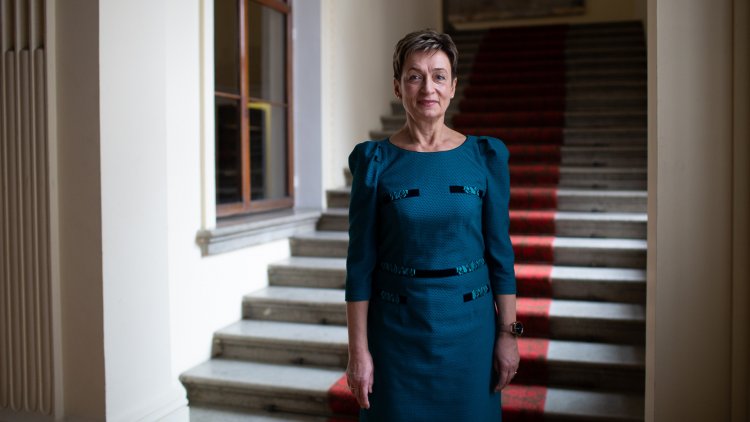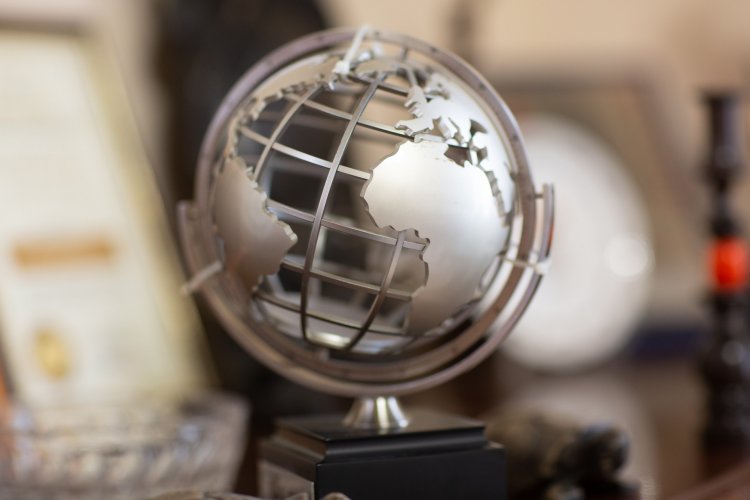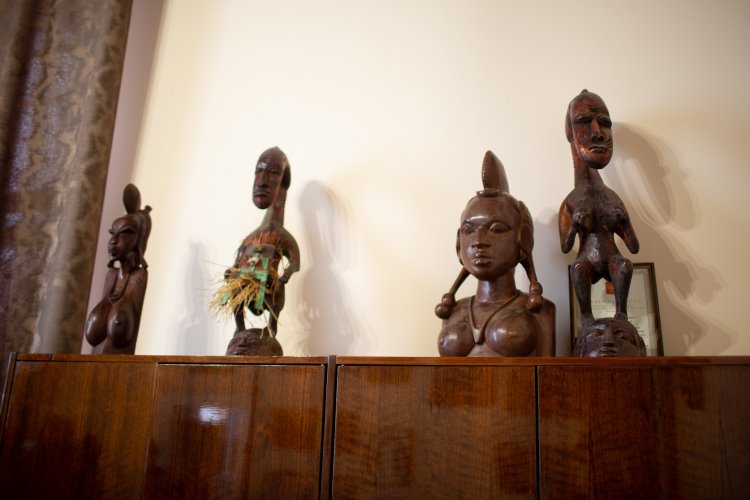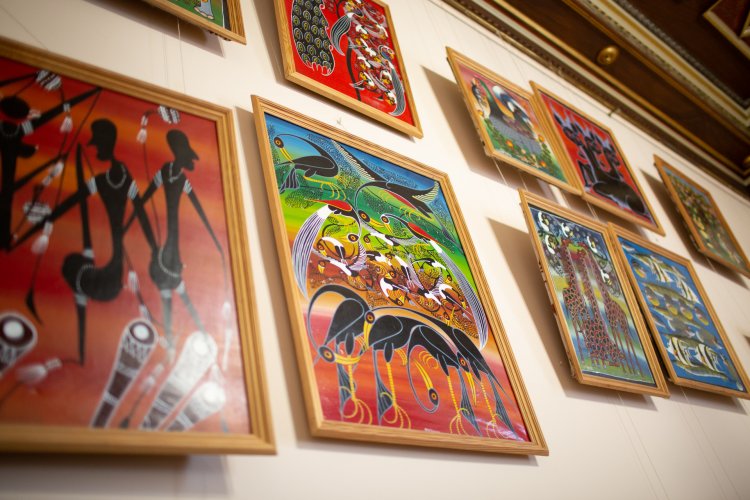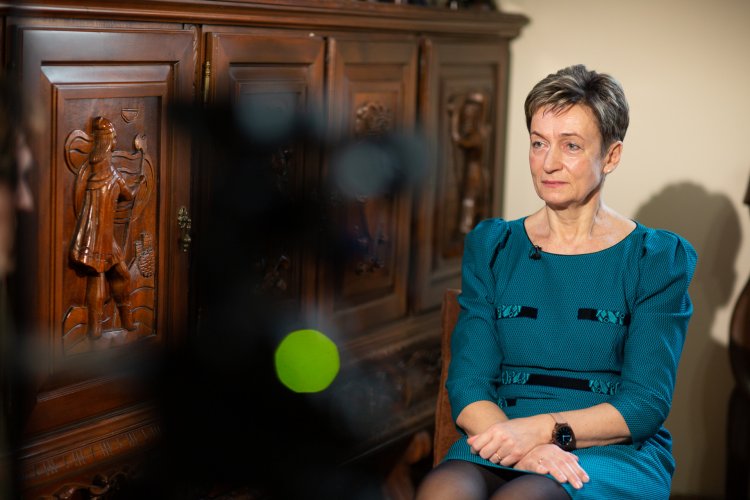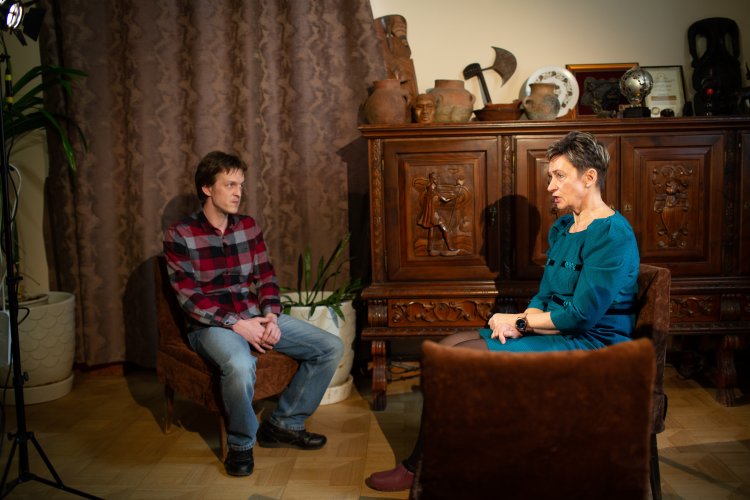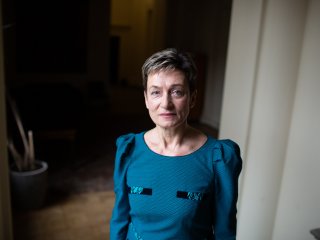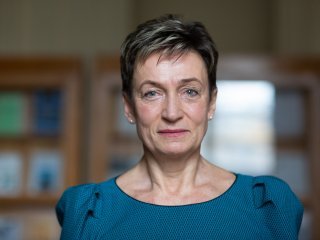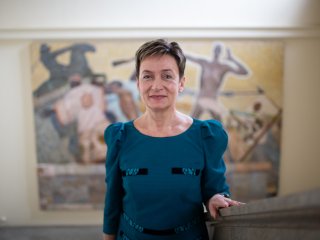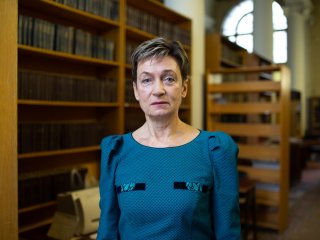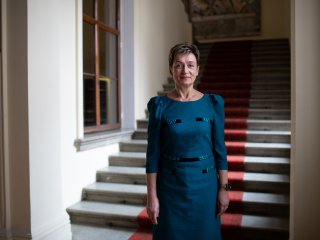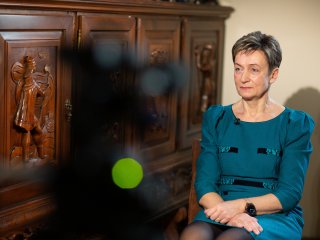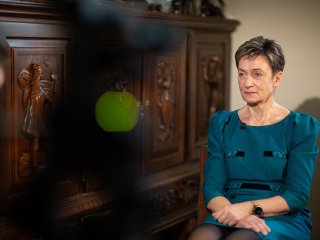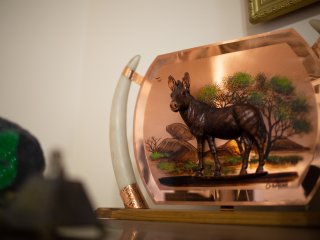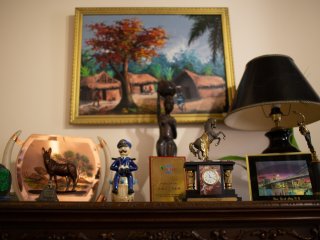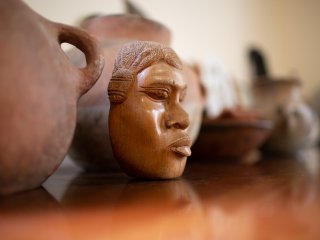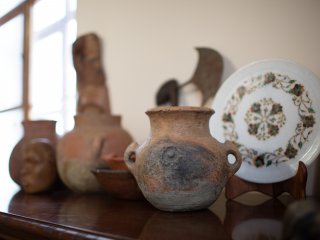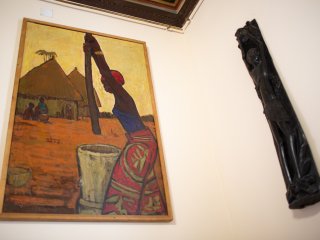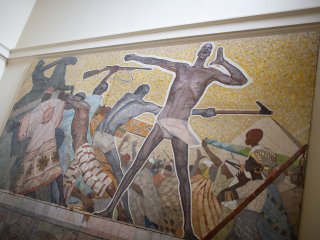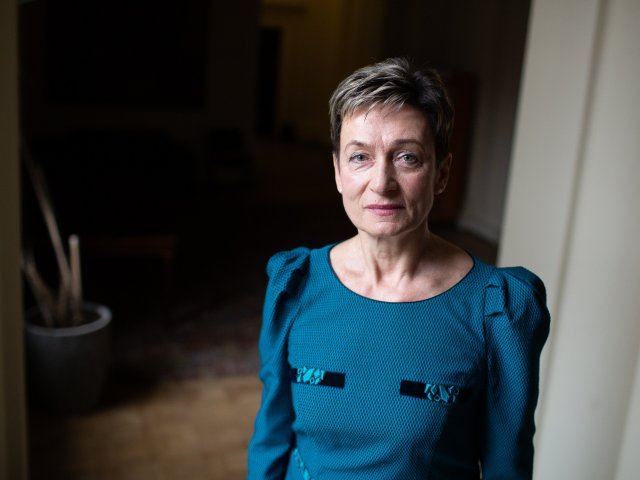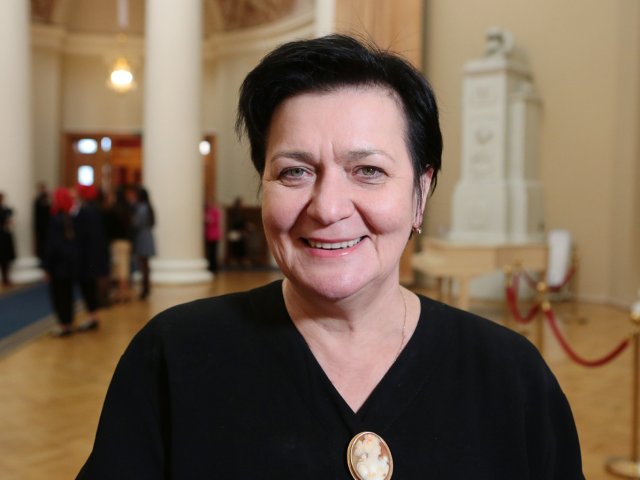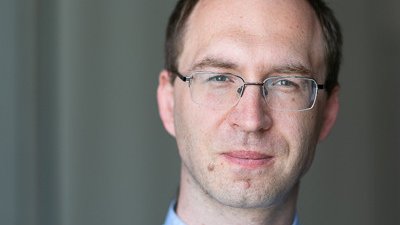What is modern Africa like? How true are the popular stereotypes about this continent? What stage are Russia-Africa relations currently at? How can scientific and technological cooperation help both our country and African countries?
Irina Olegovna Abramova, Corresponding Member of the Russian Academy of Sciences (RAS), Director of the RAS Institute for African Studies, answers these questions in her interview to Scientific Russia.
Irina Olegovna Abramova, Corresponding Member of the Russian Academy of Sciences (RAS), Director of the RAS Institute for African Studies
Photo: Andrey Luft, Scientific Russia
There are certain stereotypes about African countries: low level of technological and economic development, poor education, and internal conflicts. Even the term “banana republics” that would originally refer to Latin American states is now used in relation to African regions. How true are these stereotypes?
These stereotypes are mainly rooted in the fact that Russian people have a very poor idea of Africa, which is still largely informed by Korney Chukovsky’s poem with lines saying “Don't you go, children, to Africa for a walk.” Africa is almost excluded from our information environment. We have counted the number of mentions of Africa among other news in the main Russian media in January. Africa accounted for 0.7% of all information, even though quite significant events were taking place on the continent at that time: the coup in Burkina Faso and the establishment of the Exarchate of the Russian Orthodox Church. In contrast to this, the share of mentions of the United States reached 14% over the same period.
It is just that our society does not know that modern Africa is the fastest-growing continent of the 21st century where 60% of the population is young people under 25 and the middle class is forming faster than in other regions of the world. Africa hosts about a third of all world’s resources, including hi-tech metals, while its mineral fuels and raw material resources have not been explored yet.
In Russia, you can hear one say, “Russia is no Zimbabwe.” However, for example, the school system in Zimbabwe is no worse than in Russia, not to mention the nature of Africa, the diversity of its flora and fauna. Besides, environmentally, Africa is the cleanest continent in the world.
How does this high quality of the school system in Zimbabwe manifest itself? How is it measured? By the number of students entering foreign universities?
Unfortunately, we have this misleading idea that the ideal outcome of school education is admission to a foreign university. I do not know why this is considered the highest achievement.
In my opinion, an indicator of a good education is the acquisition of knowledge that encourages self-realization and helps people to become highly qualified professionals in their chosen career field. This is exactly what Zimbabwean school education does: it enables people to become qualified professionals who work both in their own country and abroad. By the way, the trend of employee poaching when the most talented staff is recruited by foreign companies is one of the forms of neo-colonialism. This is a common problem in Africa and Russia.
60% of Africa’s population is young people aged 25 years. Why are there so many young people on the continent?
A significant share of youth in the population is associated with high birth rates. One woman in Africa has five children, on average. This is a high birth rate. In contrast to this, a woman in Russia or Western Europe usually has one or two children.
Due to the increased birth rate, young people start to prevail in the population, and so we see a very interesting situation here. Today, the world economic leaders are China and India, that is, the countries with a significant number of young people. When young people over 15 years old prevail in a country and the share of retirement-age people is insignificant, there is the so-called demographic dividend, that is, a high proportion of working-age people. Besides, it is the young people who show an increased demand for modern goods and services. All these factors ensure good economic growth. As a rule, the dependency ratio that is accompanied by dramatic economic growth is the ratio of 1:2 (dependents : working population). African countries have not achieved this ratio yet, but they will do so in about 2030, and from that moment, the continent will be developing almost as actively and rapidly as China and India are doing today.
You are talking about the continent as a whole, but what about individual countries? Are African countries ranked by the level of their technological and economic development?
The southern regions of Africa have traditionally been its most developed territories. These are South Africa and the northern parts of Africa: Egypt, Algeria, Tunisia, and Morocco. They are absolute leaders. If we consider the big picture, we can see that four major centers have been forming recently: Egypt in the north, Ethiopia in the east, Nigeria in the west, and South Africa in the south. They are countries with large populations, a significant amount of resources, and fast-growing consumer markets.
The only country that somewhat stands out from this system is Ethiopia where development is hindered by civil war, but in the future, the country will show outstanding results. Over 115 million people live in Ethiopia today. This is the second most populous African country with a wonderful climate and good agricultural opportunities. Nikolai Vavilov once brought a collection of 400 species of Ethiopian wheat to Russia. It is a very interesting and promising country in terms of light and food industry development. It is not fortuitous that, after taking office, President of the European Commission Ursula von der Leyen paid her first visit to Ethiopia. China is building several technology parks there, while Turkey and the Arab states are also taking great interest in the country.
Other successfully developing countries are Mauritius, Ghana, Namibia, Rwanda, Kenya, and Tanzania. Botswana, one of the world’s leaders in diamond mining, is developing quite well in the south.
Overall, new growth centers are emerging in Africa, and their number will further increase in the coming years. Of course, there are also numerous problems that are largely associated with the heritage of colonialism and the activities of multinational corporations that corrupt local leaders to gain access to unique resources. African countries have been under colonial oppression for a long time, so the task of building their own independent economy is associated with huge challenges, including infrastructural ones.
The African Continental Free Trade Area was established in 2018. This is a huge step forward: within this single trade area, Africa’s eight Regional Economic Communities (RECs) hope to realize large-scale infrastructure projects to facilitate internal trade networks and develop the internal market. African leaders understand that they must develop their economy and industry independently for the most part. They should do that using international assistance. But they should diversify the latter and rely on their own resources.
Africa has traditional partners that provide the continent with both assistance and technologies. These are western countries, China, India, the Arab states, and Turkey. However, African countries take interest in Russia, too, which was demonstrated by the first Russia-Africa Summit in 2019.
The cooperation between African countries and Russia began during the era of the Soviet Union. At that time, the USSR built over 300 various infrastructure facilities in Africa, including industrial and power ones. However, this process was disrupted in the 1990s. One of the speakers at the meeting of the Presidium of RAS in February would compare the relations between the countries to the relations between an elder and a younger brother. Do you agree with this comparison?
I do not like the phrase “elder and younger brothers” as it offends our African partners. Meanwhile, the Soviet Union’s contribution, not only political, was, indeed, immense. The Declaration on the Granting of Independence to Colonial Countries and Peoples was adopted in 1960. It was initiated by the Soviet Union, by Nikita Khrushchev. Along with liberating Africa from colonial rule, the USSR would create the foundations of the African economy that was of a colonial nature at that time.
We built several hundred industrial and infrastructure facilities: factories, power plants, roads, ports, airports, schools, universities, and research centers. We went on expeditions where we worked together with our African colleagues. Of course, this cooperation had some ideological implications, as the Soviet Union would primarily provide assistance to countries with a socialist focus. However, we did not simply “buy” these countries but actually developed them. People often say that the Soviet Union had imperial ambitions. But can you find at least one empire in the world that invested more in its colonies than in itself! At the same time, the USSR was the only metropolitan country that used to spend much fewer funds on its own development than on the development of other states, and this was a really unique situation. The same was relevant to African states, and the ideas of equality and justice that they associated with socialism were very popular at that time.
What is the starting point for our cooperation with Africa today? Do we have something left from the times of the USSR, or do we have to establish the relations from scratch?
The Africans remember the Soviet Union, and they associate Russia with the USSR. African countries perceive us as a very strong international player that can help them solve problems associated with protecting their political and economic sovereignty.
However, the problem is that we think tactically, deal with short-term problems, fill the gaps, and do not look strategically into the future. We have not had a clear strategy for cooperation with Africa for a long time and the development has been reduced to the disorganized activity of individual companies.
Our companies exploit African resources which we nearly lost after the collapse of the Soviet Union. For example, we depend largely on Guinean bauxites: 25% of all raw materials for our aluminum industry are provided by Rusal which has three mines in Guinea. We need manganese and so it is supplied by Renova from South Africa. Alrosa, Lukoil, Gazprom, KamAZ, and TMH operate in Africa. Our fertilizers-making companies, primarily Uralchem, Uralkali, and PhosAgro, have recently become more active, too.
Large companies operate in African countries with a varying degree of activity, but we do not have a comprehensive government policy that would be focused on relations with Africa. When the Russia-Africa Summit took place in 2019, the Africans perceived it as an important signal that Russia would be working with Africa at the state level. Unfortunately, little has happened over the next three years after this summit. Of course, the COVID-19 pandemic also contributed to this: countries had to embrace self-isolation, and the ties were undermined by quarantine measures.
I should note here that the African continent coped with the coronavirus infection quite well in comparison with other regions of the world. The reason was the high share of youth in the population and, consequently, lower risks of severe forms of the disease. Besides, the Africans live among a huge number of serious infections, including Ebola, tuberculosis, and malaria, so their immune system is much better trained than that of the Europeans. Besides, Africa has a hot climate where the coronavirus does not spread that quickly. Another important factor is the Africans’ discipline: they wore masks without sliding them down onto their chins and performed sanitation procedures in public places. All this gave very good results.
As for the existing relations, unfortunately, the ideas that were articulated at the summit have not been realized. An important indicator is the level of foreign trade. The trade turnover between Russia and Africa reached a record-breaking $20.4 billion in 2018. In 2019, the turnover was about $16 billion, and $13 billion in the pandemic year of 2020. In 2021, the trade turnover was $16–17 billion. Not only have we failed to increase the foreign trade, but we have also failed to keep up with our past results.
The Africans often tell me that they do not expect loans from Russia for they will get ones from Europe or China. Neither they expect trade because the latter is mainly performed through European intermediaries. The Africans expect Russia to provide them with technologies.
Russia has a strategic development program until 2030 that attaches fundamental importance to the development of science and technologies, as it is clear that we will have no progress without our own developments. African countries are ready to become a testing ground for technologies from Russia. The demand for technologies is very high in Africa, so we should not think that they are scientifically backward territories.
African scientists demonstrate quite good results in biotechnologies and agricultural technologies. They actively develop financial technology, such as blockchain. Africa shows the fastest pace of development in this area. The growth in these technologies has amounted to 1,200% over the past two years. Cameroon, Nigeria, and South Africa are among the top 10 countries in the development of cybercurrencies. For example, the first online payment was made in Kenya rather than in the USA or Europe. Rwanda has announced a move to a cashless economy. Nigeria already uses eNaira. Decentralized financing is popular in Africa, predominantly because it allows small and medium-sized businesses to develop. Youth that prevails in the African population promptly learns to use new technologies and contributes to their improvement.
It is important for the Africans to develop everything that has to do with space, and they are looking forward to cooperating with Russia in this area. African countries are interested in launching their own satellites that would provide data on natural phenomena and help with geological exploration. Some resource deposits in Africa have not been discovered yet. For example, huge oil and gas reserves in East Africa have been discovered relatively recently, in the late 1990s – early 2000s. In the meantime, our geologists predicted back in the 1970s that there were probably very large oil and gas deposits along the East African Rift. They were right.
The Africans are interested in our smart city technologies and community servicing centers. They need cloud technologies, too: our company that has created a government cloud platform is already operating in Burundi.
Biotechnology and biosafety are topical issues for us. Today, 20 African countries have over 30 US biological laboratories according to official data. Africa is a perfect place to study how serious infections must be managed. In this respect, our cooperation is directly related to our security.
Is scientific and technological cooperation the main focus of our relations with Africa now?
The thing is we have not done much in the field of science or technological cooperation yet, but, yes, I believe that this is the right direction for the development of our relations. We should offer Africa something that would distinguish us from other countries.
We need something that would act as a trigger for the development of our relations, including trade and investments. The scientific and technological partnership is just perfect for the role of this trigger. It is mutually beneficial for Russia and Africa. In this regard, Russia may become a country that does not exploit the continent and does not export resources from it, but rather helps it develop and increase high value-added production.
Now, when the western vector of our economic policy is curtailing, we have to look for new markets and diversify them. We should not focus only on China or India. It is clear that they are large economies that appear more comprehensive to us, but we have to build relations with African countries, too, on condition that the logistical problems are solved.
What about the situation with fundamental science in Africa?
First of all, fundamental science is actively developed in South Africa, Nigeria, and Kenya. Egypt, Morocco, and Algeria have well-known centers and universities.
We supported fundamental science in Africa and built large research centers during the Soviet era. At the global level, fundamental research in African countries shows good results in agriculture, biology, medicine, geological exploration, and ecology. These are the five key areas. To some extent, they successfully develop the humanities, that is, everything concerned with anthropology and archeology.
In most countries, fundamental research is funded through government subsidies. At the same time, Africa is creating science funding centers: they collect 1–2% of companies’ profits.
For example, there is a small country Burkina Faso, in which local telephone network operators invest 2% of their revenues in the country’s scientific development fund. I think that this is a good system to support scientific research.
Scientific cooperation and science diplomacy usually start at higher education establishments. This involves student and teacher exchange programs and branches of the institute in other countries. What about this type of cooperation in Russia-Africa relations?
There have been recent attempts to improve the situation.
Most African students study at Russian medical and engineering universities. They are interested in these areas, and, besides, Russian education in these areas is widely recognized in Africa. Quite many students study at our agricultural universities, and not only in Moscow and Saint Petersburg.
However, there are problems in this area as well. For example, the Chinese know very well that, by teaching the Africans in their country, they form the elite who will take specific governmental posts and business positions in the future and will take into account China’s interests. China provides foreign students with free flights and decent scholarships. These favorable conditions allow the Africans to focus on studies and learning Chinese.
Russia neither provides scholarships nor pays for flights. Of course, we try to get the Africans engaged in Russian culture and invite them to take part in various events, but the scale is incomparable: the Chinese annually provide scholarships for 50,000 African students. Russia is only planning to increase the number of African students to 10,000.
Recently, we have begun to place a greater focus on private companies in terms of education, and this has shown some positive results. For example, Rosatom provides funding for African students and trains them for work at its representative offices and enterprises in Africa.
There is an idea to create an online university for African countries – this work is led by Crimean Federal University (CFU). It is now unclear how this project will develop or what results it will have.
We used to teach foreign students in Russian: they came to our country, studied our language for a year, and only then the main course began. Language is largely intertwined with culture and worldview. This is how the Soviet mentality was formed. At least some of the people who studied in the Soviet Union hold senior positions today. They are our friends, and they have this focus on Russia. Now we teach foreign students in English and French. It is easier and cheaper, but the language and culture components are missing.
What about Russian professionals who speak the languages of African countries?
This is a very important question. 25 African languages were taught in the USSR, and annually we trained 10–12 professionals who could work in Africa and speak local languages. It is very important. I studied Arabic, and I remember very well how attitudes change when you start talking to people using their native language.
Today, African languages are taught at the Institute of Asian and African Studies of MSU. As a rule, they teach a group of five people per year. Some professionals are trained at the Moscow State Institute of International Relations (MGIMO): they study Swahili, Afrikaans, and Amharic. There are also very few students there. African languages are taught to a limited extent at several other Russian universities.
We need to improve core African language training. Americans know very well what Africa means today in geostrategic and geo-economic terms. Over the past decade, they have been training diplomats who speak local languages well. We have missed this. Taking into account that relations with the African continent will develop anyway, we should train qualified Africanists right now.
Do we need to know African culture and understand its mentality to develop cooperation? To what extent are traditions preserved on the continent and how can they affect our cooperation?
It is very important. First of all, the culture of ten thousand African peoples and nationalities is rich in and of itself. Traditions play a huge role in their culture, so we have to know these traditions and understand the mentality to properly and respectfully communicate with the Africans.
The Africans are people with great dignity. They get offended by situations where, for example, business people come to the continent, meet with the Africans dressed in beautiful traditional clothes, and then say, “Stand here, I’d like to take a picture with you.”
Here is one example of the ignorance of local traditions and culture. We planned to build a plant in one of the African countries: we came to an agreement with their ministry, obtained the necessary documents, and arrived at the site. Our delegation was met by a council of elders who said, “The ministry means nothing to us, this is our land, and the local council controls it.” The plant was never built.
This ignorance of African culture is critical and so there are scientists who study Africa’s culture. Our institute is actively involved in such studies.
How does the RAS Institute for African Studies prepare for future cooperation? Are there specific research studies that focused on developing relations?
We have been preparing for the development of cooperation for a long time, and our institute played a huge role in preparing the first Russia-Africa Summit and Economic Forum. In fact, we were responsible for the development of this program together with ministries and agencies.
We do not study languages, but we are actively engaged with African culture, its traditions, history, economy, and politics. Our institute has ten research centers, and each of them studies African regions and fundamental science there.
Of course, we do not have enough experts. There is a very significant age gap: we have many employees aged 65+ years and a lot of young people. However, there are practically no scientists aged 40–50 years who would receive Soviet education and get the necessary experience. Meanwhile, it is the most productive age for scientific activity.
Nevertheless, we keep working. We conduct fundamental research studies that provide us with knowledge about how Africa has been developing. Recently, we have started to place a stronger focus on the development of a new strategy for Russia-Africa relations.
I believe that the institute will accomplish its goals when our knowledge of the historical, cultural, economic, political, and anthropological processes in Africa helps us establish bilateral relations.
